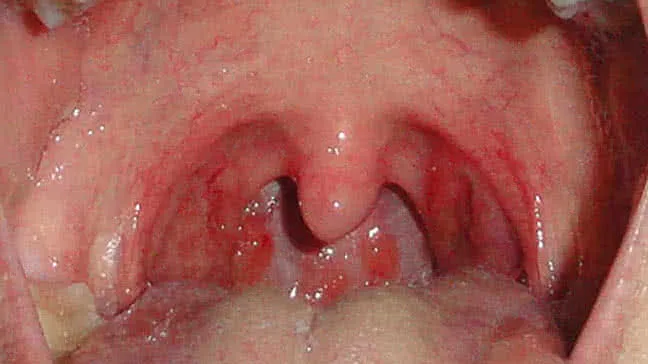What is strep throat?
Strep throat is an infection caused by bacteria that can cause pain and inflammation in the throat. This condition is usually caused by the group A Streptococcus bacteria.
Strep throat can be a problem for both adults and children of all age groups. However, it is most prevalent in children between 5 to 15 years old. Snorting, coughing and sharing food items and other forms of close contact with a person with a streptococcal pharyngitis infection could transmit strep infection from one person to another.

Symptoms
Symptoms of strep throat can vary among individuals but generally include a sore throat. Not all people with strep throat will have a sore throat, especially early in the infection.
Common strep throat symptoms include:
- Abdominal pain, especially in children
- Bad breath and bad taste in the mouth
- Difficulty swallowing
- Flu-like symptoms (fatigue, fever, headache, cough, aches and pains)
- Nausea and poor appetite
- Sore throat
- Swollen glands (lymph nodes) in the neck
- Swollen tonsils and throat that appear cherry red
- White patches or pockets of pus on the tonsils

Complications
If left untreated it can lead to severe complications.
The potential problems include:
- Otitis ear
- sinusitis
- pneumonia
- Peritonsillar abscess that is a pus-filled infection , is found at the back of the tonsils
- Rheumatic Fever It is an inflammation-related disease which affects hearts, joints and the skin
- post-streptococcal reactive arthritis is an inflammatory arthritis that occurs in multiple joints
- Poststreptococcal – related glomerulonephritis. It an infection of kidneys
- bacteremia in which bacteria are present in bloodstreams (also referred to as “blood poisoning”)
- meningitis An inflammation in the membranes that protect the spinal cord and the brain.
- pediatric neuropsychiatric disorder autoimmune that is associated with streptococci (PANDAS), which causes abrupt changes in a child’s behavior or personality following an infection with strep bacteria.
- streptococcal toxic syndrome, an uncommon, but potentially fatal bacteria-related infection

How to prevent strep throat
Sore throat is extremely contagious. If you or someone in your household has strep throat, it is important to take steps to prevent the further spread of the infection.
You can reduce the risk of spreading strep throat by:
- Avoiding sharing items that touch your mouth, such as drinking glasses, silverware, or lip balm
- Coughing or sneezing into your elbow, not your hand. If you cough or sneeze into a tissue, dispose of it promptly and wash your hands thoroughly.
- Throwing away your old toothbrush after you recover to avoid reinfecting yourself
- Using a separate tube of toothpaste from others in the family
- Washing hands frequently and thoroughly, especially before touching food or common surfaces like doorknobs or computer keyboards

